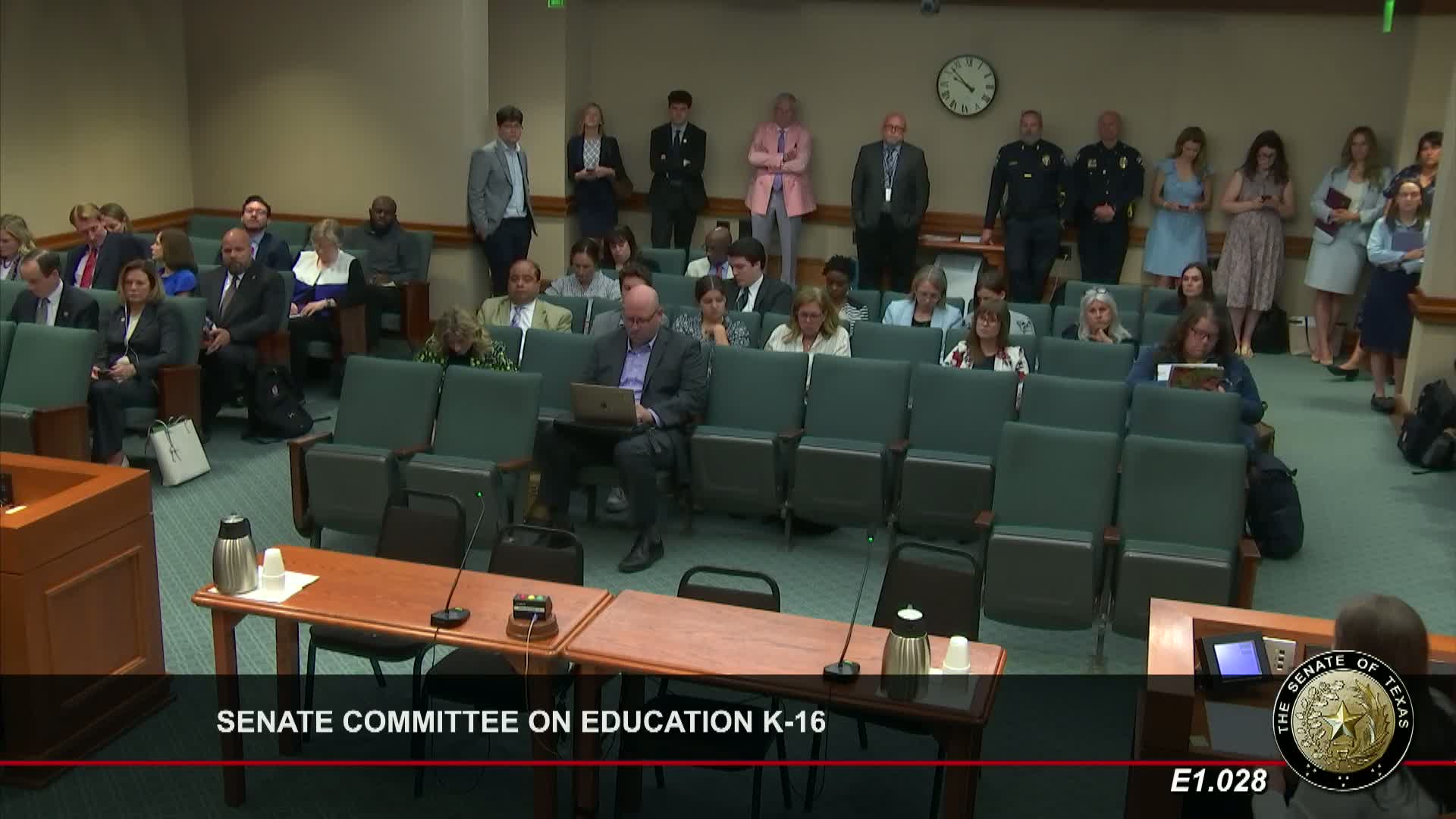Article not found
This article is no longer available. But don't worry—we've gathered other articles that discuss the same topic.
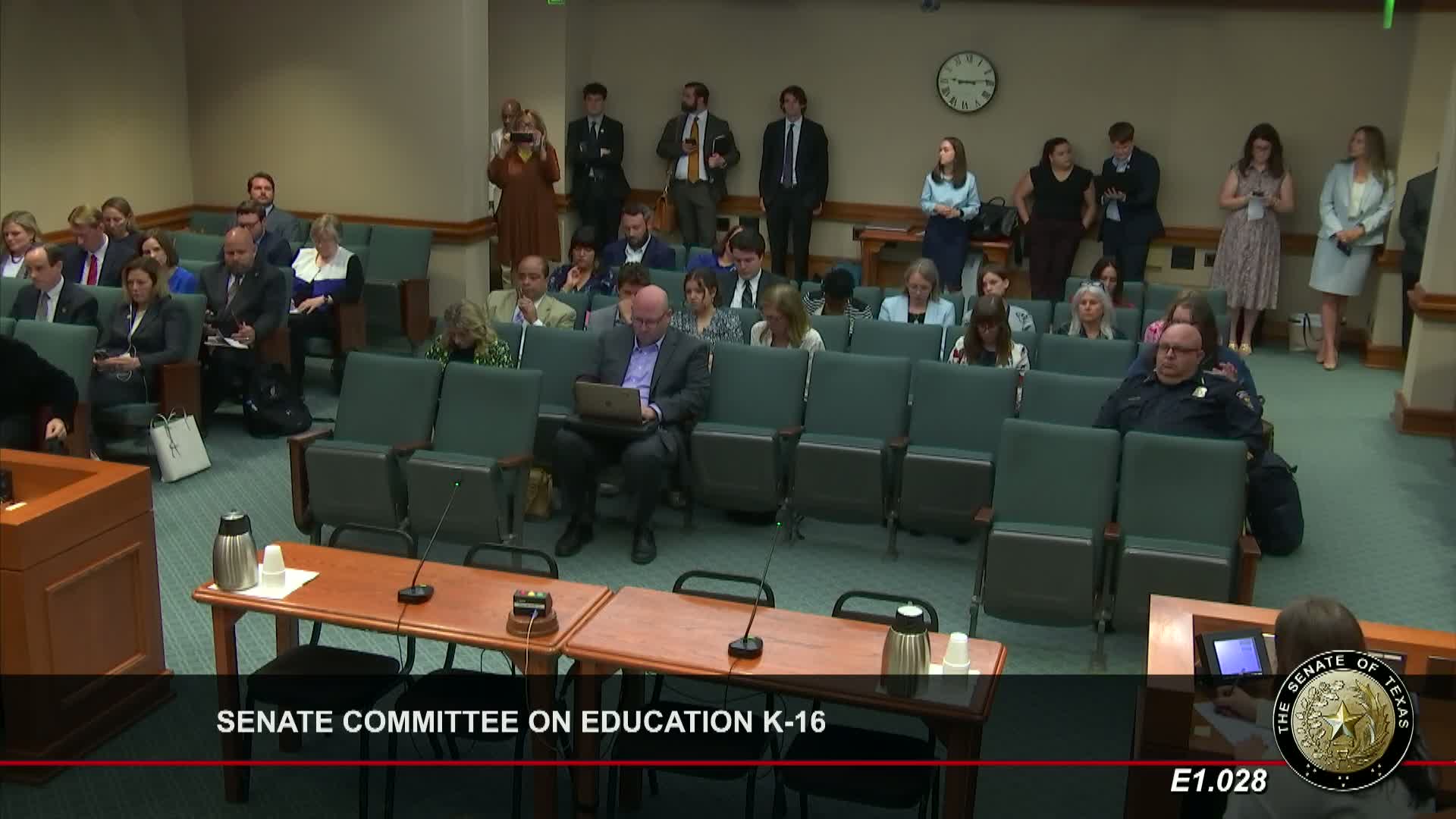
Committee debates school safety cleanup bill that would let TEA commission peace officers, tighten reporting rules
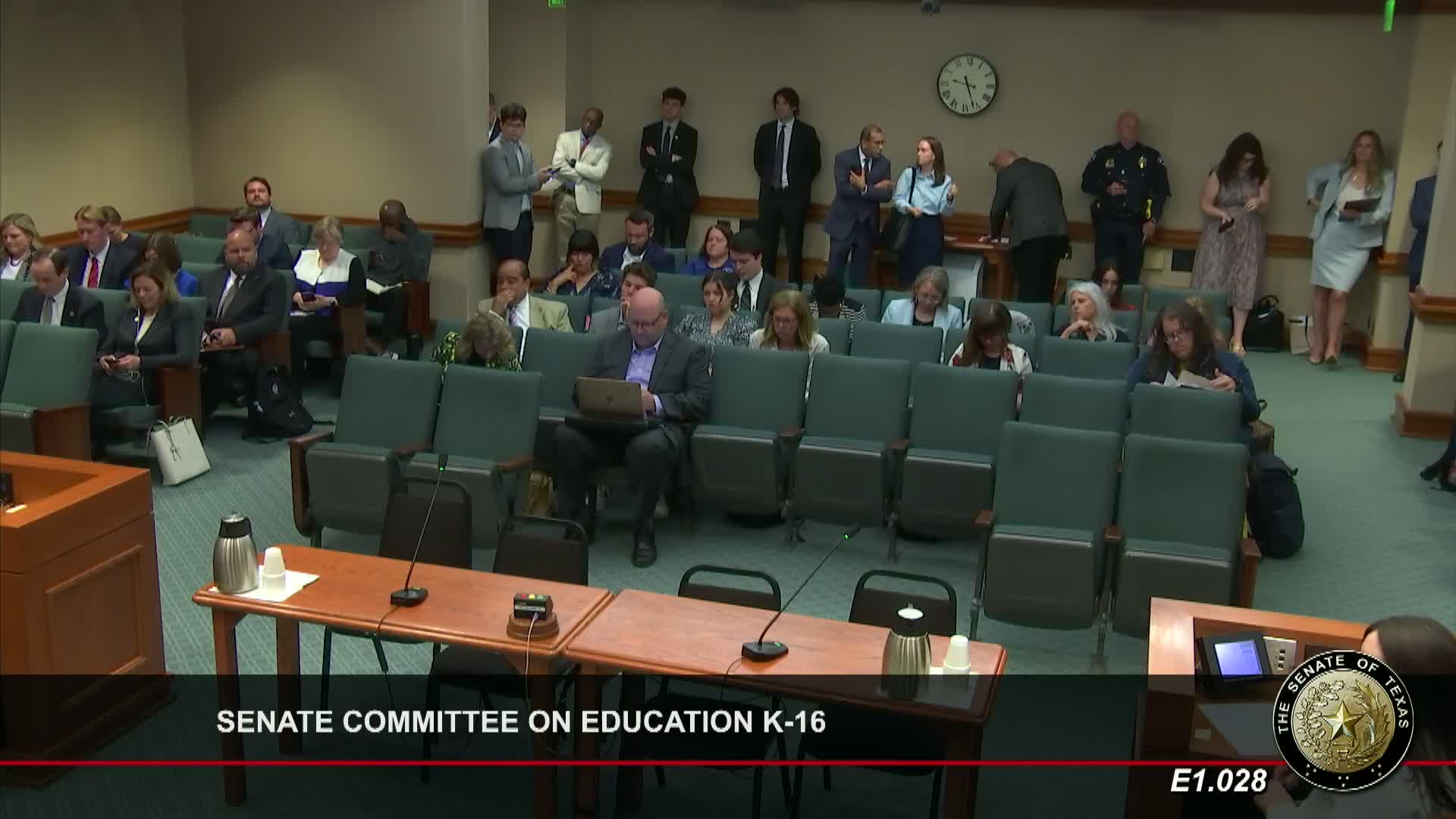
Committee hears testimony on unusual shipping charges for instructional materials; bill would limit allowed freight fees
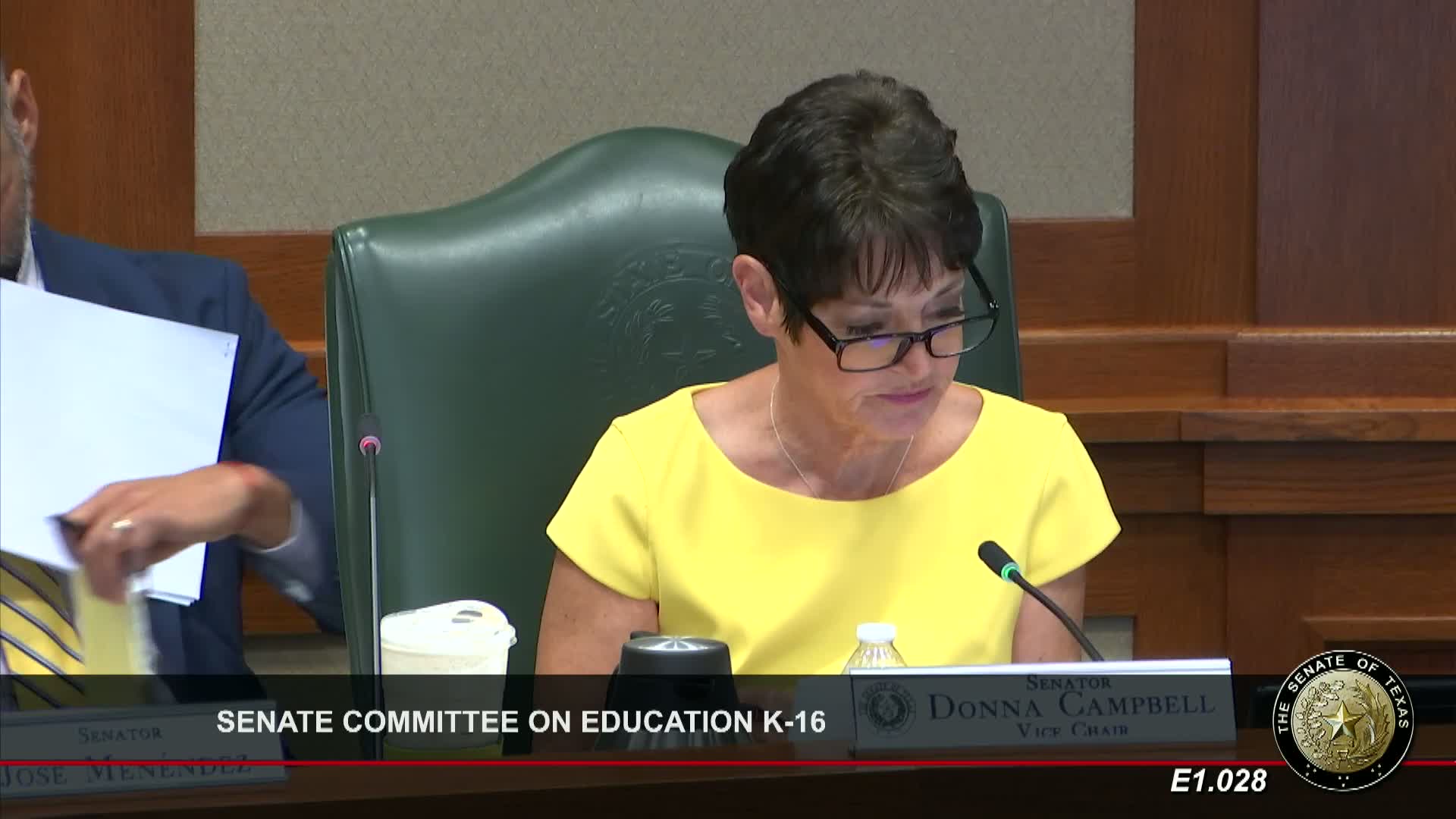
Committee considers bill to block state agencies from increasing homeschool regulation
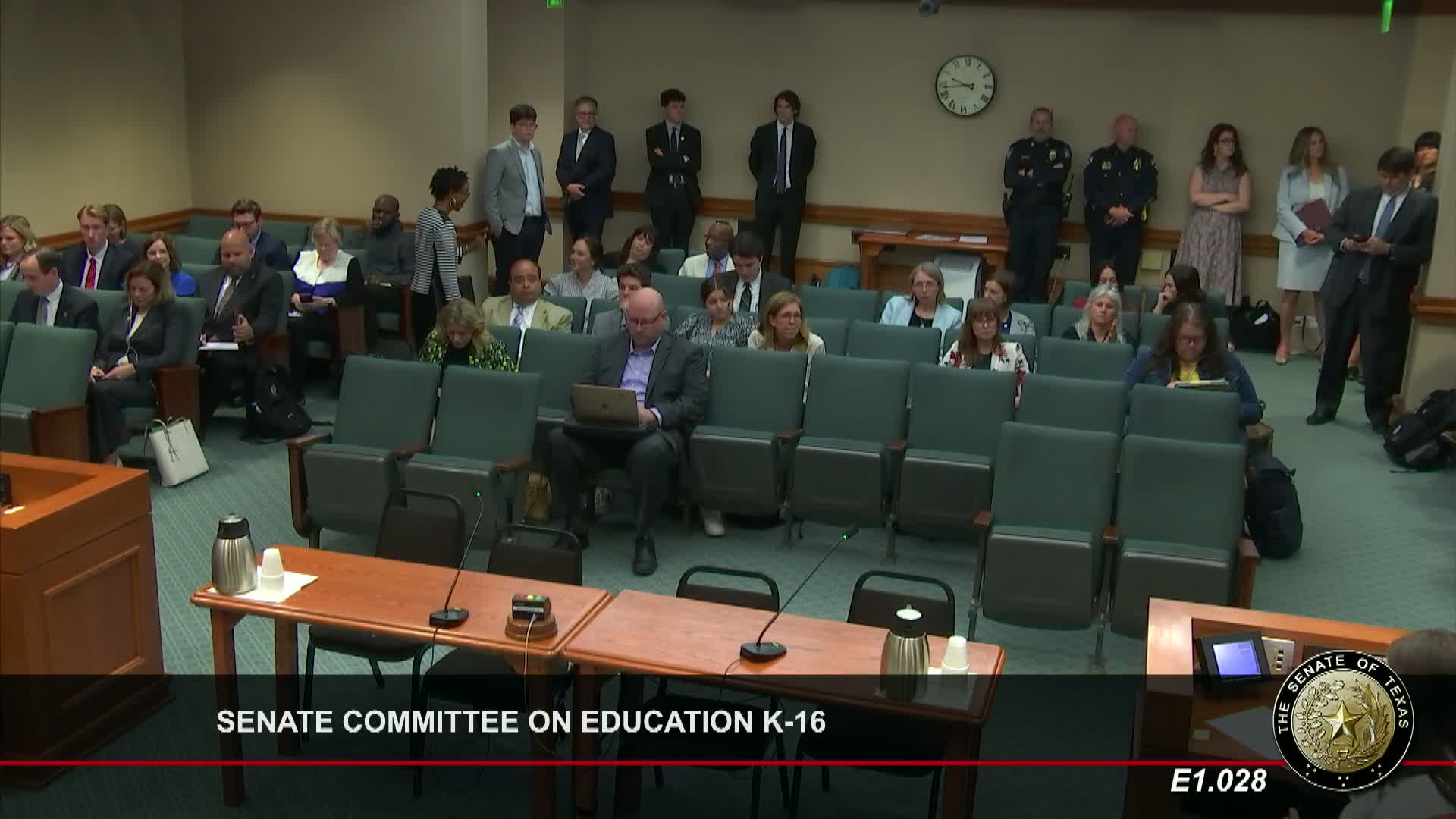
Panel backs statewide strategic plan for inclusive early learning for children with disabilities
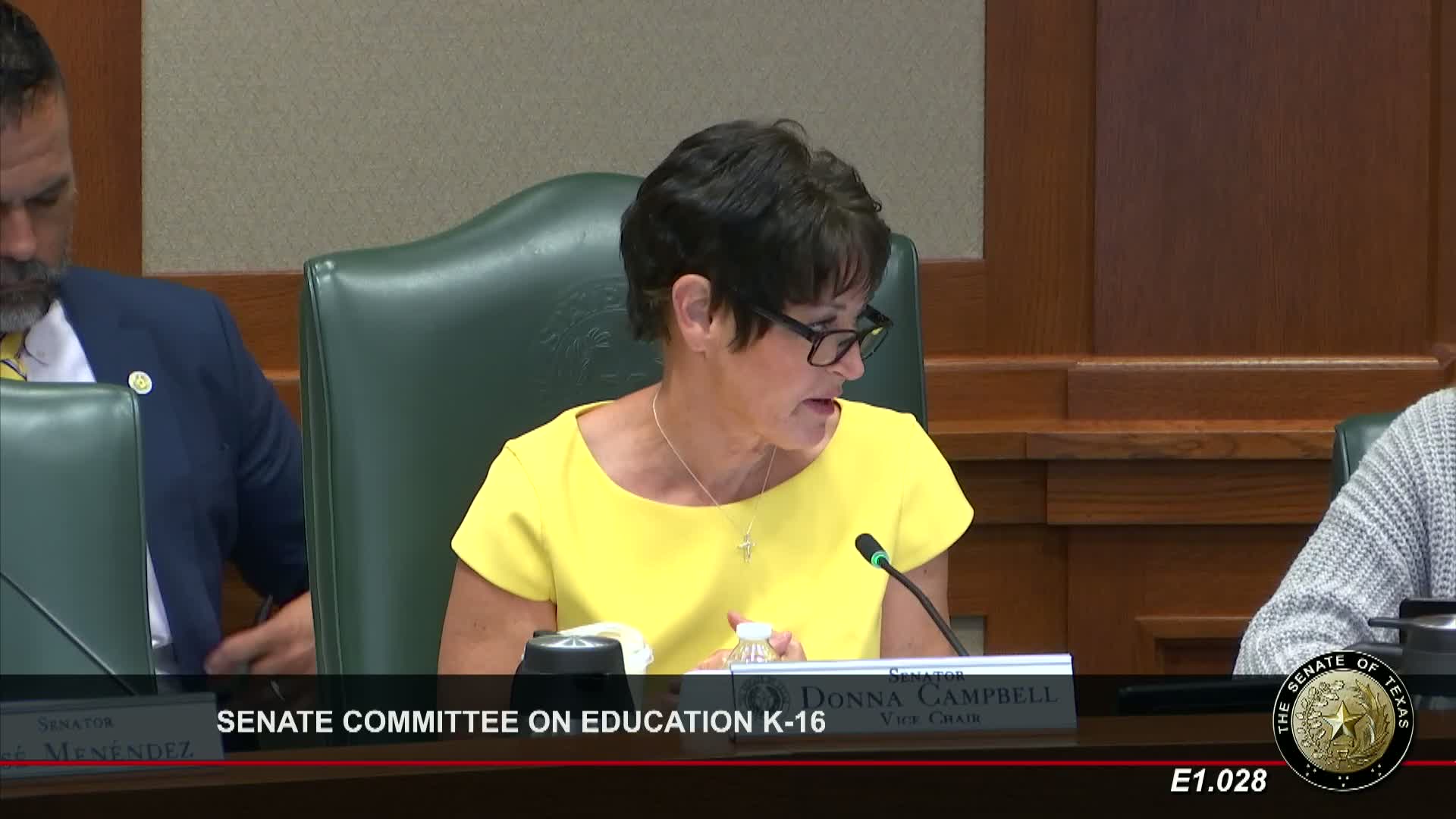
Committee hears broad testimony for bell‑to‑bell school‑day cellphone restriction bill
